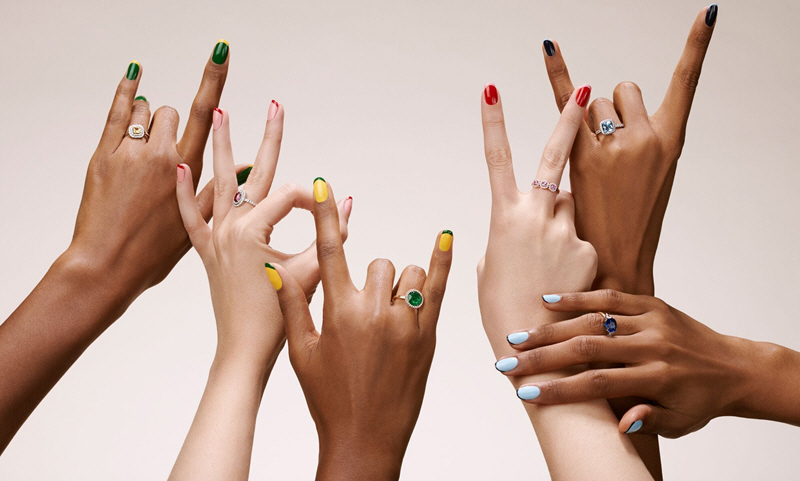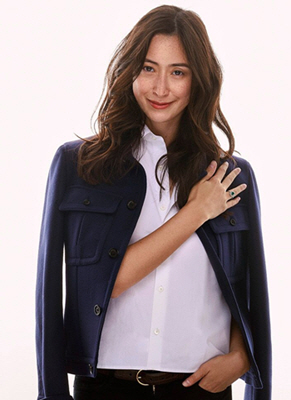Day in the Life
A day in the life of a startup founder
November 15, 2018
In this regular series, we're speaking to various players in the private equity and venture capital spaces—including startups, founders and noteworthy dealmakers—to see what daily life looks like for them.

This week, we spoke to Laura Lambert (pictured), founder of London-based independent jewelry brand Fenton & Co.
What does a typical day look like for you?
I've been involved in every single aspect of the business, right from developing the idea, building the team, fundraising, vetting the supply chain, being on the creative photo shoot ... so a typical day really involves performing a lot of different functions.I think the main thing that characterizes my working day is just a lot of WhatsApp! I'm a real frenetic WhatsApper because it's very popular in India, where we manufacture, and it lets me keep in touch with the team there.
What led you to your current role?
What really made me zone in on this type of company was the combination of direct-to-consumer (D2C) and the ethos of cutting out the middleman with making every customer feel like a full-price customer. I really felt like that kind of democratization of product and experience along with a more efficient supply chain led to the overall point of delivering a better product for less money. When looking at areas where I thought that this was applicable, jewelry jumped out at me. It was quite a logical process I guess of whittling down various options based on those criteria.I also had a desire to provide value to customers and to differentiate ourselves in the market, which is why I didn't choose diamonds. Not only are they priced very high as soon as they are mined, but when I started thinking about the message I wanted to send, I was opposed to pitching a mono-product and this idea of a diamond engagement ring that we've been sold by big jewelry companies. The more you think about it, it makes absolutely no sense when it's an incredibly personal decision, why you would choose a product that looks the same as everyone else's.
That was where the idea for "loving in color," which is our brand, came from because I actually felt that the advertising and the societal positioning of that product is very homogenous. It's all about traditional relationships; it's largely about clean-cut, slightly generic-looking couples. I felt that the idea of building a brand around a colorful product, and for people who live a more "colorful life," as it were, was a more relevant and modern brand and it sends an important message.
What is the most challenging part of your job?
There are lots! I think that there are people who just don't get what we're trying to do. D2C doesn't really exist as a standalone investment vertical in the UK in the same way that it does in the US. It is starting to become much more prominent, but at the same time, going out and raising for a D2C company was a challenge.The first thing you hear is that people aren't going to spend that much money on the internet and this won't scale. But you then think, "Well, people are selling furniture on the internet that costs more than some of the engagement rings we're talking about." And as we've seen from some of the other D2C companies, they definitely can scale.
What is the most rewarding part of your job?
I love all of it. The most rewarding part is being able to be completely hands-on with absolutely everything. I love the detail of the supply chain and sitting with my excel sheets. I love doing the creative—I was literally on set for the whole two days shouting directions at everyone. I love every part of it because I love being involved in the whole and watching how every piece affects others.What is the most important part of your job?
We are an impact brand that is socially responsible, we have raised from impact investors, and we are building a responsible and transparent supply chain. What's really important is balancing the commercial reality and the mission every single day and making sure that we are making decisions that will make both of those elements prosper.What advice would you give to other startup CEOs?
I would give advice in particular to female founders. Starting a company is a brutal process of constant rejection, and you probably come off a trajectory where you tick some boxes or have done well earlier in your career, and that gets you in the door maybe. But then, you have to prove yourself above and beyond that a hundred times over. What I would say is that there's no reason why women shouldn't push themselves and undergo that, and believe that if they keep pushing and have that perseverance that they will see results. So, my advice is just strap in, hold on, and go for it.Outside of work, what are your interests?
I am quite nerdy outside of work as well as in work. I read a lot, and I love animals, so my favorite thing is going home and seeing my dog, our CCO (chief cuddle officer). But there isn't a lot of "outside of work" at the moment, to be honest!How do you balance your professional and personal lives?
That's one that I'm still getting to grips with. I think that the key is just learning to switch off and pipe down and be in the moment. It's a very generic answer, but honestly, I think that's the only one that works, as well as a bit of exercise occasionally.If you were stranded on a desert island, what would you take with you?
Definitely my dog! In terms of books, there are so many good ones, but I just reread "The English Patient," and it's just so exquisite! It's a good one for a desert island as it might give me some survival tips. I'm watching "House of Cards" currently, so I would have to finish that. For audio, it's brutally cringey, but I would take "1989" by Taylor Swift!
Comments:
Thanks for commenting
Our team will review your remarks prior to publishing.
Please check back soon to see them live.